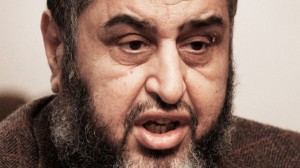 The Muslim Brotherhood suffered a political setback Tuesday when an Egyptian court suspended the assembly charged with writing the country’s new constitution amid criticism that Islamists held too much sway over the panel.
The Muslim Brotherhood suffered a political setback Tuesday when an Egyptian court suspended the assembly charged with writing the country’s new constitution amid criticism that Islamists held too much sway over the panel.
The court’s decision, which criticized how the assembly was selected, was the latest in a series of challenges to the Brotherhood, which controls nearly 50% of the seats in parliament, as it attempts to consolidate power and anchor the constitution to Islamic Sharia law.
The judges in effect disbanded the 100-member constituent assembly, which was made up mostly of Islamists, including ultraconservative Salafis.
The verdict came after liberals, securalists, Christians and other groups boycotted the assembly over concerns that the Brotherhood would impose a religious agenda at the expense of civil rights and democratic freedoms. It was another indication that the Brotherhood, which for decades had been outlawed, was clumsily maneuvering in new political terrain following last year’s revolution that toppled former President Hosni Mubarak.
“This is a historic verdict by the Egyptian judiciary. It had to come, especially after all the boycotts and withdrawals from non-Islamists from the panel,” said Tarek Khouli, a leader with the April 6 democratic movement.
“Now national powers need to come together,” Khouli said. “There should be certain regulations and conditions to guarantee the fair representation of all sects and political forces in writing down a new constitution representing all Egyptians.”
The constitutional assembly, elected by lawmakers from the upper and lower houses of parliament, had been widely disputed for weeks, opposed by constitutional experts and the subject of numerous lawsuits. Its suspension means Egypt may not have a new constitution when the ruling military council, which had called for the panel’s creation, hands power to an elected civilian government in June.
Legal experts said that the army’s declaration did not give parliament the sole right to appoint or elect 50 of its members to serve on the assembly, which was also comprised of scholars, businesspeople, non-Muslims and others. The experts also argued that the panel should have been selected through a national referendum. Those boycotting the panel included the Coptic Church and Al Azhar, the prestigious Sunni Muslim university.
“I respect all rulings and call on all national forces to sit together to reach better solutions to overcome this crisis,” Khairat Shater, the Brotherhood’s presidential candidate, said in a statement on the organization’s website.
The ruling was another disappointment for the Brotherhood in particular and Islamists in general. The Islamist-led parliament failed recently to dismiss the military-appointed Cabinet led by Prime Minister Kamal Ganzouri. The army curtly informed the Brotherhood that only the ruling generals had the power to decide the Cabinet’s fate.
The Brotherhood angered much of the public last month when it reversed an earlier promise not to run a candidate for president. By entering Shater, a multimillionaire and former political prisoner, the Brotherhood was viewed as seeking a monopoly on power and aloof to other political and religious voices.
The court’s decision on Tuesday was regarded by some political parties as an attempt to clip the Brotherhood’s ambitions.
“This verdict puts things back in their right place. A constitution can’t be formed according to only one political spectrum, but it should be made for all Egyptians and for generations to come,” said Abdel Aziz Nahhas, a member of Wafd Party’s executive committee.
“Egypt has witnessed a real crisis after one political sect wanted to use its parliamentary majority to solely and exclusively form the constitution,” he added. “This can’t be right. A constitution is much bigger than this.”
LA Times

Leave a Reply
You must be logged in to post a comment.